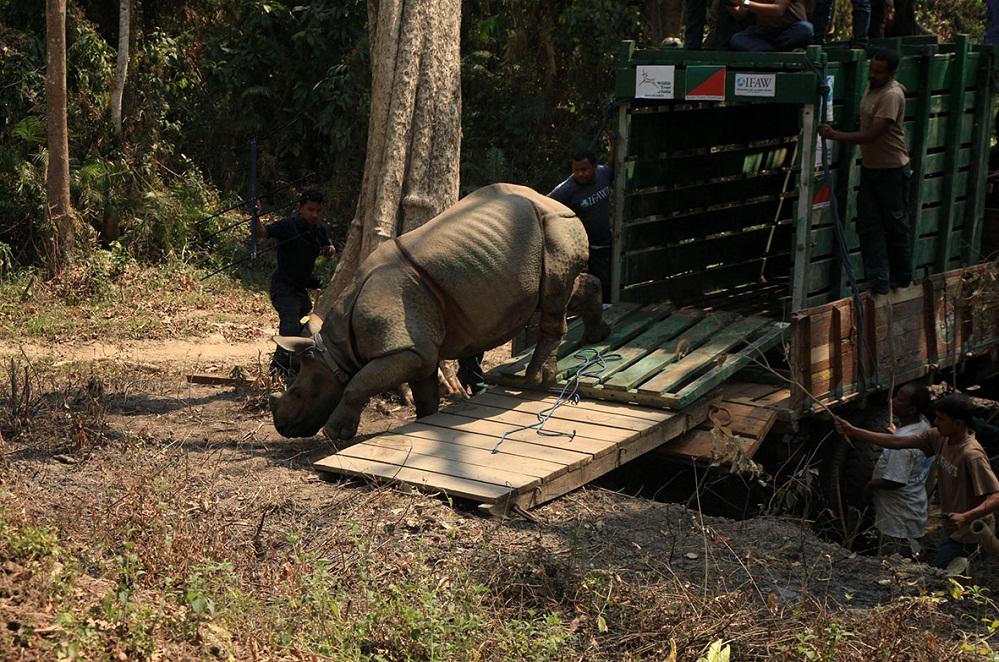Two rhinos being hand-raised at the IFAW-WTI run Centre for Wildlife Rehabilitation and Conservation (CWRC) were released in Kaziranga National Park today. The two sub-adult male rhinos --Sohola and Baghmari -- have been under the observation of IFAW-WTI veterinarians and animal keepers since 2010 and 2012 respectively.
S K Seal Sarma, DFO, Kaziraga said, “Sohola and Baghmari, the two male rhinos were rescued in different situations from Kaziranga National Park in 2010 and 2012 respectively. Both the rhinos were hand raised at CWRC and released with radio-collar and ear-tag for monitoring their movement for a period of time in Kaziranga. ”
On December 19, 2010, Sohola was just about four months old when its mother was killed by poachers and found next to its dead mother near Sohola beel under Eastern Range of Kaziranga National Park. He was then rescued by a team of Assam Forest Department and IFAW-WTI rescue team. The calf was then admitted to CWRC for care and hand-raising.
Meanwhile, on 1st of July, 2012, during the floods in Kaziranga, Baghmari, just a couple of month male calf, was rescued by the Kaziranga Forest staff from Baghmari area under Western Range of Kaziranga. He was separated from his mother due to high flood current. After preliminary investigation, Baghmari was shifted to CWRC for further care.
During their stay at CWRC, both the rhinos were initially fed milk formula and were then allowed to graze. Both the animals were kept in separate paddocks at the CWRC campus. Now Sohola is about four and half years old while Baghmari is about three years old.
Following all release protocols, both these rhinos were radio collared and ear tagged by a team of veterinarians led by Dr Bhupen Sarma of College of Veterinary Science, Guwahati along with the IFAW-WTI veterinarians Dr Bhaskar Choudhury, Dr Panjit Basumatary and Dr. Bishwajit Boruah at the CWRC premises.
Today both these rhinos were released in the Bagori range of Kaziranga NP. This is for the first time that rescued and hand raised rhinos are released at Kaziranga National Park. So far eight other rescued and hands raised rhinos were successfully rehabilitated at Manas National Park of Assam.
The CWRC is the first rescue and rehabilitation centre near a protected area in India. Strategically located in Borjuri village, adjacent to the Panbari Reserve Forest, near Kaziranga National Park in Assam, the centre attends to a wide range of wildlife emergencies resulting from natural or anthropogenic causes.
CWRC was established in August 2002 with a primary aim to stabilise displaced animals and release them back into the wild, as close to the site of rescue as possible, following necessary treatment. The centre follows accepted international protocols and guidelines during rescue, treatment and rehabilitation of displaced or distressed animals.
- 6710 reads









Add new comment